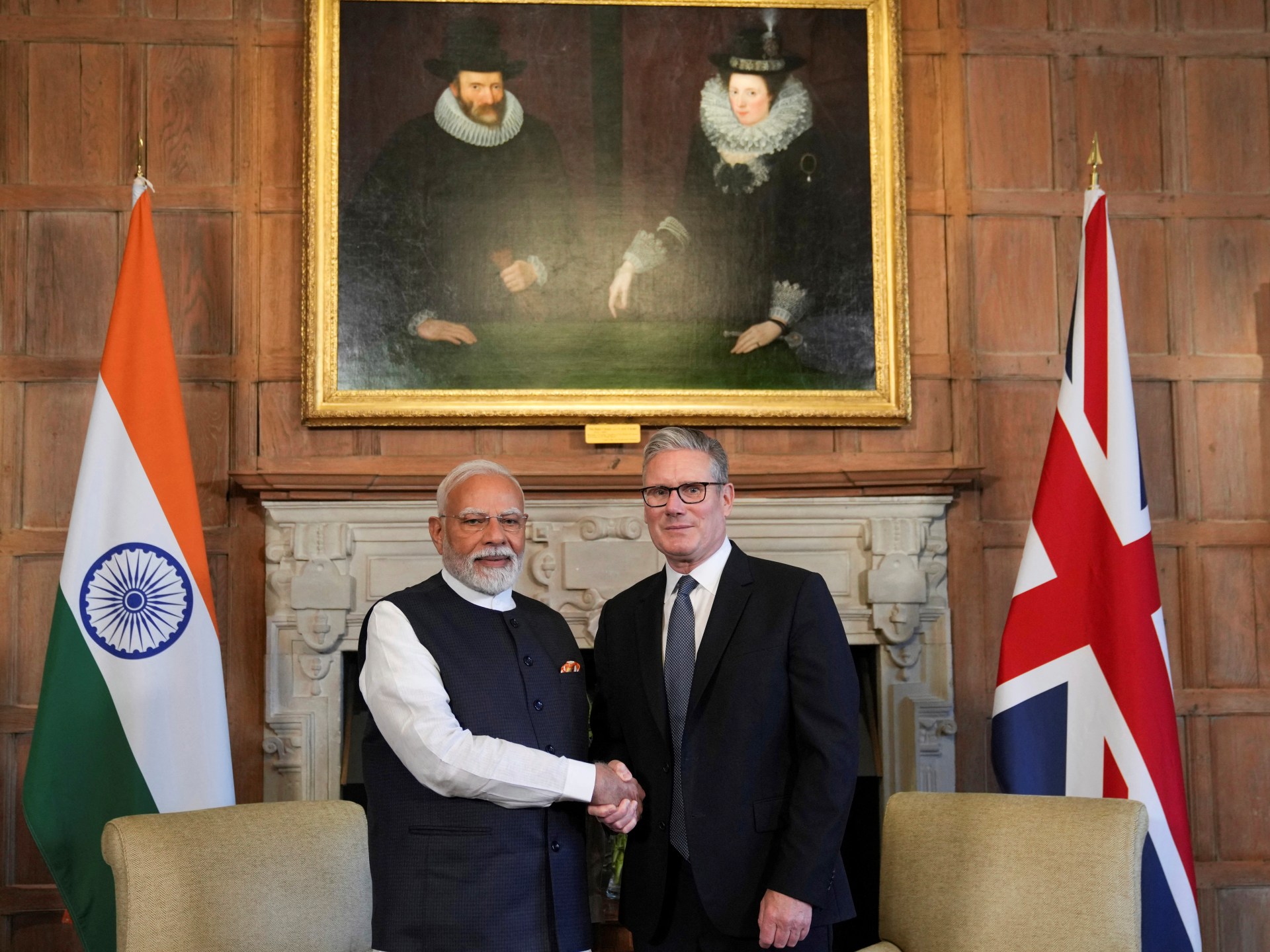A trade agreement between the UK and India will lower tariffs on everything from cars to spices to textiles, allowing businesses to gain more market access.
The deal, which British Prime Minister Keir Starmer described as a “landmark moment” for the two nations, was praised on Thursday. At the signing ceremony between the UK and India’s trade ministers, Jonathan Reynolds and Piyush Goyal, Starmer hosted Indian Prime Minister Narendra Modi at his Chequers country estate, northwest of London.
After three years of stop-start negotiations, Starmer and Modi announced in May that they had reached a free trade agreement, with both parties accelerating their efforts to reach a deal in the midst of tariff uncertainty unleashed by US President Donald Trump. The UK Parliament must still approve the agreement.
Our collaboration with India is not limited by this, Starmer said. We want to strengthen our relationship even more, so it becomes even more ambitious, modern, and focused on the long term because of our strong historical ties, family, and cultural bonds.
Although the Office for Budget Responsibility (OBR) has predicted that UK exports and imports would be approximately 15% lower in the long run than they would be if Brexit had not taken place, Starmer added that the deal was “the biggest and most economically significant trade deal” the UK has made since leaving the European Union in 2020.
The agreement was referred to as a “blueprint for our shared prosperity,” according to Modi, who was present alongside Starmer during a media appearance.
The agreement, which would set the stage for a long-awaited agreement with the EU as well as discussions with other regions, would be India’s biggest strategic partnership with an advanced economy.
Additionally, the two nations made announcements to work more closely together in areas like defense, migration, climate, and health, and announced almost 6 billion pounds ($8 billion) in trade and investment deals in areas like AI, aerospace, and dairy products.
The UK and India hope that the agreement will increase trade between the two nations by 25.5 billion pounds ($34.45 billion) and eventually by 4.8 billion pounds ($6.5 billion) annually.
The deal will lower India’s average tariff on British goods from 15% to 3 percent, according to the UK government. Whisky and gin import taxes will be reduced from 150 to 75 percent, before dropping to 40 percent by the deal’s tenth year. Automobile tariffs will be reduced from a quota of more than 100 percent to 10 percent.
According to the deal, which covers items like clothing, shoes, and food, 99 percent of Indian exports will not be subject to import duties, according to the country’s Ministry of Commerce and Industry in May.
With investments generating more than 600, 000 jobs for both countries, the trade relationship between Britain and India is valued at about 41 billion pounds ($55.35 billion), which is the sixth and fifth largest economies globally, respectively.
Starmer and the Indian prime minister were also likely to discuss the recent Air India disaster, which claimed 241 lives when it crashed after taking off from Ahmedabad in western India.
In the June 12 crash, which is considered to be one of the most fatal plane accidents in terms of the number of British fatalities, 169 Indian passengers and 52 British nationals were killed.
At the G7 summit in Canada last month and the G20 summit in Brazil last year, Starmer and Modi have previously met twice.
Source: Aljazeera

Leave a Reply